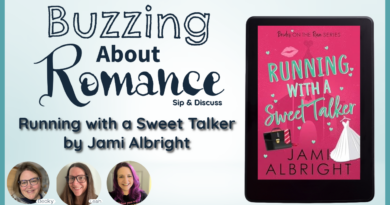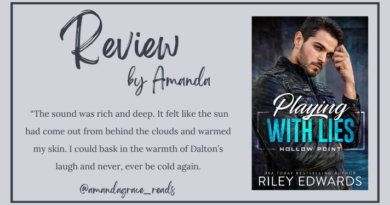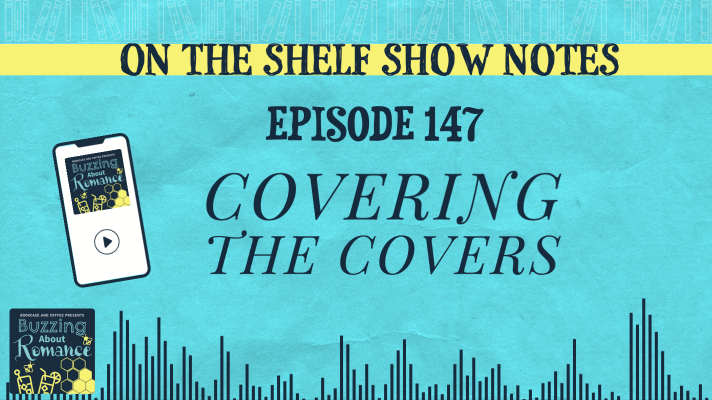What does HEA mean?
Why Romance Has to Have a Happily Ever After—No Ifs, Ands, or Tragic Endings
Let’s be real—romance without an HEA (Happily Ever After) is just a cruel joke. If we wanted heartbreak, we’d turn on the news or rewatch Titanic (which, by the way, is not romance—I said what I said).
Here at Bookcase & Coffee, we read romance because we want the promise. The safety net. The absolute, unwavering guarantee that no matter how messy, angsty, or dramatic the journey gets, love will win in the end.
So let’s talk about why the HEA is non-negotiable and why any book that pulls a bait-and-switch on us is getting tossed across the room.
First, What Even Is an HEA?
An HEA (Happily Ever After) means that by the final page, the main couple is together, in love, and happy. Simple, right? It doesn’t mean their lives are perfect (we’re not asking for a fairy tale castle, though we wouldn’t say no to a duke with a spare one). It just means that the love story gets the resolution it deserves.
A Happily For Now (HFN) is the chill cousin of the HEA—it means the couple is together and happy, but we don’t have a guarantee that everything is locked down for eternity. It’s more common in series romances where we know we’ll see more of the couple later.
What is NOT an HEA?
❌ One of them dies.
❌ They “love each other” but go their separate ways.
❌ The ending is ambiguous (Ma’am, this is not literary fiction. Pick a side).
Why Romance Must Have an HEA
1. Romance Readers Expect It—And We Will Riot
Romance has one job: to deliver a love story that ends in happiness. If we spend 300+ pages emotionally invested only for the book to rip our hearts out in the last chapter, we’re flipping tables.
Imagine reading an enemies-to-lovers, grumpy-sunshine, slow-burn masterpiece and then… BAM, they break up. Or worse—one of them dies in a tragic accident (cough Nicholas Sparks cough). We didn’t sign up for this emotional warfare.
No HEA? No romance. It’s that simple.
2. Life Is Hard—Romance Shouldn’t Be
We turn to romance for comfort, joy, and hope. The world is stressful enough—bills, work, the last season of our favorite show getting canceled. We don’t need our escape books betraying us, too.
Romance isn’t about pretending life is perfect—it’s about proving that love is worth the fight. No matter what obstacles a couple faces—miscommunication, a villainous ex, a surprise secret baby—love wins. And we, as readers, need that reassurance.
3. The HEA Makes the Journey Worth It
If a romance couple fights, struggles, and battles through every single trope we adore, only to NOT end up together? What was the point?!
We love angst. We love drama. We love that moment when the hero realizes he’s been an idiot and goes all-in on the grand gesture. But if that doesn’t lead to an HEA? We’ve been emotionally scammed.
Romance isn’t about easy love—it’s about earned love. And without an HEA, the journey feels pointless.
4. No HEA? No Romance. Period.
A book can have a love story and still not be romance. The Fault in Our Stars? A love story, yes. But not romance (I am still recovering, TBH).
If the main couple isn’t together at the end, the book is either women’s fiction, literary fiction, or a tragedy masquerading as romance. And we don’t have time for that kind of emotional ambush.
But What About Books with “Realistic” Endings?
A good romance doesn’t have to be fairytale-perfect—it just has to give us closure. The couple can still have struggles, but at the end of the day, we need to close the book knowing they’re choosing each other.
If I wanted an “open-ended” or “realistic” love story, I’d eavesdrop on someone’s messy breakup in a coffee shop.
The Bottom Line: Romance = Love Wins
If you’re writing a romance, don’t even think about denying us an HEA. And if you’re reading one and worried about the ending? Check the genre first. Because true romance will never leave you heartbroken.



